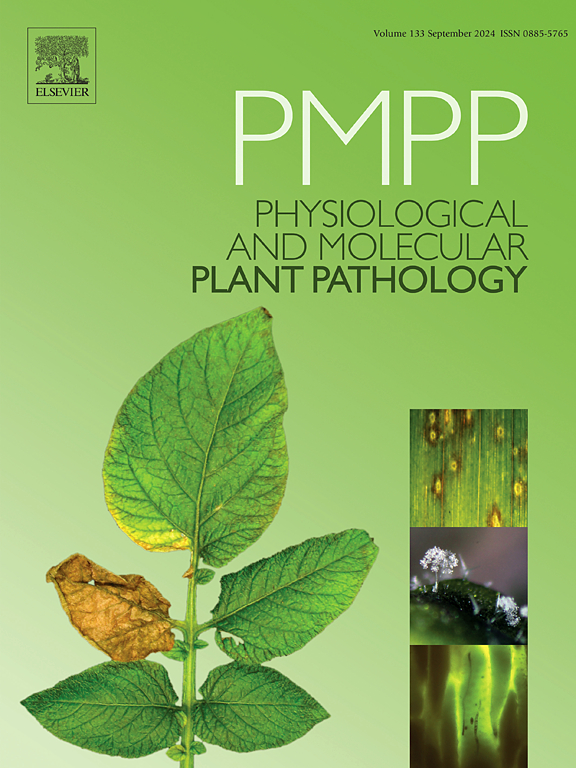动植物来源的有机废物的价值为植物寄生线虫的可持续管理
IF 2.8
3区 农林科学
Q2 PLANT SCIENCES
引用次数: 0
摘要
土壤施用有机废物可改善土壤健康,诱导微生物活性,在促进植物生长的同时创造不利于植物病原线虫(PPNs)生长的条件。本文综述了各种有机废物类型的实际应用,包括农业残留物、牲畜粪便和城市废物,以管理ppn和减少作物损失。这些有机改进剂通过释放杀线虫化合物,如挥发性脂肪酸、氨和异硫氰酸酯,改善土壤结构,提高养分有效性,有助于抑制PPN。本文提供并讨论了关于利用有机废物将主要PPN密度降低50 - 100%的最著名的研究,这取决于有机修正的类型、目标线虫种类和环境条件。总的来说,使用有机废物作为PPN控制策略提供了一种可持续和环保的方法,通过将废物转化为有价值的资源来促进循环经济原则。讨论了与大规模应用相关的质量控制、病原体传播和营养不平衡方面的挑战,以及优化功效和安全性的潜在解决方案。本文章由计算机程序翻译,如有差异,请以英文原文为准。
Valorization of animal and plant-derived organic wastes for sustainable management of plant-parasitic nematodes
Soil application of organic wastes enhances soil health and induces microbial activity, creating conditions detrimental to phytopathogenic nematodes (PPNs) while improving plant growth. This review examines the practical application of various organic waste types including agricultural residues, livestock manure, and municipal waste for managing PPNs and reducing crop losses. These organic amendments contribute to PPN suppression by releasing nematicidal compounds, like volatile fatty acids, ammonia, and isothiocyanates improving soil structure, and enhancing nutrient availability. The paper provides and discusses the most known studies about the use of organic waste to reduce major PPN densities by 50–100 %, depending on the type of organic amendment, target nematode species, and environmental conditions. Overall, the use of organic waste as a PPN control strategy offers a sustainable and eco-friendly approach, promoting circular economy principles by transforming waste into valuable resources. Challenges related to quality control, pathogen transmission, and nutrient imbalances associated with large-scale applications are discussed, alongside potential solutions for optimizing efficacy and safety.
求助全文
通过发布文献求助,成功后即可免费获取论文全文。
去求助
来源期刊
CiteScore
4.30
自引率
7.40%
发文量
130
审稿时长
38 days
期刊介绍:
Physiological and Molecular Plant Pathology provides an International forum for original research papers, reviews, and commentaries on all aspects of the molecular biology, biochemistry, physiology, histology and cytology, genetics and evolution of plant-microbe interactions.
Papers on all kinds of infective pathogen, including viruses, prokaryotes, fungi, and nematodes, as well as mutualistic organisms such as Rhizobium and mycorrhyzal fungi, are acceptable as long as they have a bearing on the interaction between pathogen and plant.

 求助内容:
求助内容: 应助结果提醒方式:
应助结果提醒方式:


